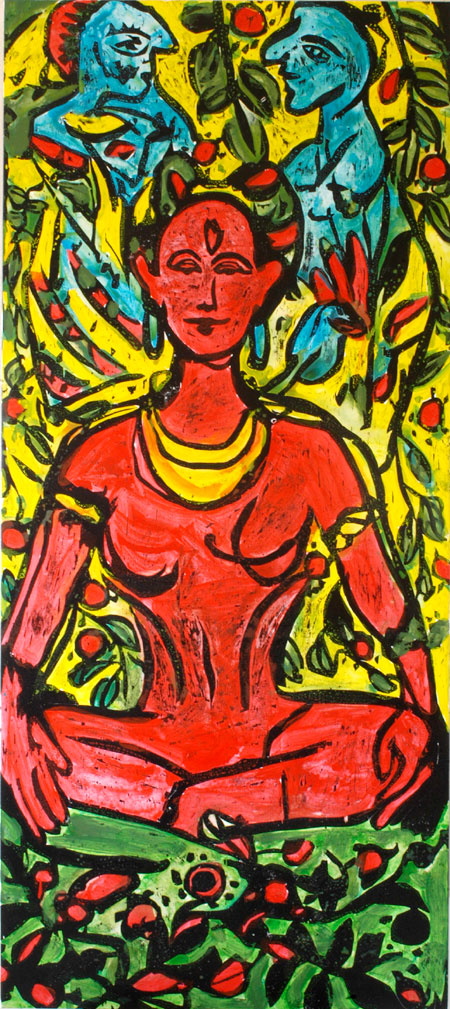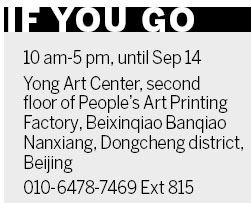 |
|
Female Gymnosophist NO2, woodcut by Jin Songmin. |
Four contemporary women artists - Jin Songmin, Liu Jinghua, Qu Wenqian and Chen Tianxiang - all Buddhists, have gathered for an ongoing exhibition, titled When Women Become Artists.
The display shows off their meditations on art, from oil paintings to woodcut paintings.
"I am not a feminist but I try to find and portray women who have beliefs," says Jin, 31, who graduated from the Central Academy of Fine Arts and majored in woodcut painting.
The exhibition is her brainchild. "I always find myself struggling in a male-dominated world, but when I found these women artists who share the same belief, I feel reassured. Buddhism brings tranquility to our hearts."
Jin's works are inspired from Buddhism and ancient Chinese stories, but interpreted from the perspective of a female.
"In my paintings, man and woman become symbols," she says. For example, in her painting, Female Gymnosophist, it's hard to tell if the character is male or female.
Another of her works, The Prince Shen Sheng Woman, portrays an ancient Chinese story of an old king's favorite concubine who conspired to eliminate Prince Shen Sheng so that her son's position could be elevated. The king believed her slander and decided to kill the prince. But to maintain the country's stability and peace, the prince committed suicide. His sacrificial act leaves him a special place in history.
"I was impressed by the story, the prince's belief, his loyalty and commitment to his country," says Jin, who has developed The Prince Shen Sheng into a four-painting series.
Unlike Jin, artist Qu shows a soft side of women artists. She uses mirrors as the platform to reflect her fantasy world, in which rabbits, birds and ribbons interweave together. Compared with Jin's strong red, blue and black colors, the 30-year-old artist uses pastels such as pink, light blue and white.
"It reflects my dream world - surreal yet warm," she says.
The other two artists present their nostalgic mood for their hometowns - a small town of Jilin province in northeast China and Guilin city of Guangxi Zhuang autonomous region in southern China. Their paintings portray how the industrialized society transformed their hometowns.
|
|
|
|
|
|
|
|
